It’s dark outside. I get out of the car and rush into the emergency department. I’m a fourth-year medical student, and this is my last shift here.
I walk in, place my coffee on the table—dangerously close to the keyboard—and open up the electronic medical record. I’m surprised to see that there isn’t much going on. Just one new patient—a woman with some back pain.
Great, another lumbar pain–probably muscle strain, I think. I’ll give her some acetaminophen and a lidocaine patch. That ought to do the trick. It usually does.
I walk into the room, introduce myself, sit down on the rolling chair and ask the woman what she would like to be called.
“I go by Betty,” she says. She has a sweet smile, a motherly smile.
“What’s going on, Betty?” I ask.
“I have back pain, belly pain, neck pain and a headache,” she says. “It’s been going on for a couple of weeks, but over the past couple of days it’s gotten worse.”
I ask about her medical history.
“I’ve had some abdominal surgeries, and I had metastatic breast cancer,” she answers. “It’s been in remission for about four years.”
I notice that she seems quite distressed. Not the kind of distress that comes from physical pain, but the kind that comes from worry—a burden far beyond mere physical discomfort.
This will need more than a lidocaine patch, I reflect.
I want to ask her more questions, spend more time with her, but I also want to give her pain medications to relieve her physical symptoms, and I need to discuss the treatment plan with the resident. I excuse myself and go talk to the resident.
Given Betty’s history, we decide to order a CT scan. I ask the nurse to get the analgesics ready for Betty.
I return to the room and discuss the plan with Betty. Her face looks heavier now.
“Can you help me get to the restroom?” she asks.
“Of course!” I say. I offer my shoulder for support, and she leans against me. As we make our way along the hall, she says in a quiet, breaking voice:
“You know, I had a friend who was diagnosed with breast cancer around the same time I was. We went through chemo together. Both our cancers went into remission at around the same time. Unfortunately, hers came back. She passed away in February of this year.”
I offer my condolences, struggling to find the right words. Moments like this are difficult; I don’t know what to say. Then I walk her back to her room.
“What do you think is going on?” I ask gently. “What concerns you the most?”
“I’m worried that the cancer is back,” she says. “But I can’t think that way. I have to stay positive.” My heart breaks a little at her words.
She notices the cross dangling from my neck.
“Do you believe in God?” she asks. I nod.
“He’s the one who got me through that time,” she says.
“Would you like me to pray with you?” I ask, and the motherly smile returns to her face. So we pray.
Having helped Betty get settled in her room, I’m running around, seeing other patients. One has a headache: Take the history, do the physical exam, come up with a plan, talk to the resident.
I check Betty’s chart; the CT scan isn’t back yet.
Someone needs a laceration repair: Take the history, do the physical exam, come up with a plan, talk to the resident, stitch them up.
I check Betty’s chart; the CT scan isn’t back yet.
Another patient comes in with a cough: Take the history, do the physical exam, come up with a plan, talk to the resident. Check Betty’s chart; the CT scan is back.
I open it, eager to see the results. I pray.
The resident and I go back to Betty’s room. Her motherly smile is absent.
“We have some unfortunate news,” the resident says. “It appears that you have some metastatic lesions in the liver and bones. I’m terribly sorry….We’ll make sure to get in contact with your oncologist.”
Tears begin to roll down Betty’s cheeks. I have to hold back my own. I feel a tightness in my throat. I can’t imagine what she’s feeling.
She looks at me and smiles. Her motherly smile. She extends her arm, inviting me to hold her hand. So I do.
“Would you pray with me?” she asks, her voice gentle, but filled with a quiet strength.
I nod. I offer a trembling hand, warm with sweat, and together we close our eyes, letting the silence guide our prayer. In that stillness there is a shared vulnerability, an unspoken understanding between us. It is a moment of human connection that transcends diagnoses and the sterile confines of this emergency room.
This prayer isn’t just for her; it’s for me as well—a reminder of the power of faith, hope and compassion in the face of uncertainty. When we finish, a sense of peace lingers, a quiet comfort that no medication could provide.
“Everything will be okay,” Betty says softly. She smiles again. Her motherly smile. She thanks me, her eyes filled with appreciation.
I feel undeserving, unworthy of such gratitude. I haven’t done anything, I think. But the knot in my throat dissipates. I no longer feel like crying.
In this moment, I’m suddenly reminded why I love this profession. It is not the procedures or diagnoses that stay with me, but the quiet, shared moments of trust and human connection.
In the days and months that follow, even when I feel that I haven’t done enough, the memory of Betty’s smile reassures me that sometimes simply being present and listening is enough. Her gratitude becomes my motivation—a reminder that my role in her journey, no matter how small, provided comfort and healing beyond what I could measure. In that shared moment, she showed me why I chose this path—not only to heal the body but to touch the soul as well.
Betty. In a matter of hours, you allowed me to step beyond the role of clinician and become a source of emotional and spiritual solace. Your motherly smile appeared not when I offered you medication, but when I offered to pray with you and held your hand. I think it’s safe to say that, in that moment, emotional comfort was more vital to you than physical relief.
There lies the beauty of this profession: the chance to connect and heal in ways beyond the tangible. Thank you for allowing me to be part of it. I will never forget you.
Betty. Thank you for reminding me why I love medicine.

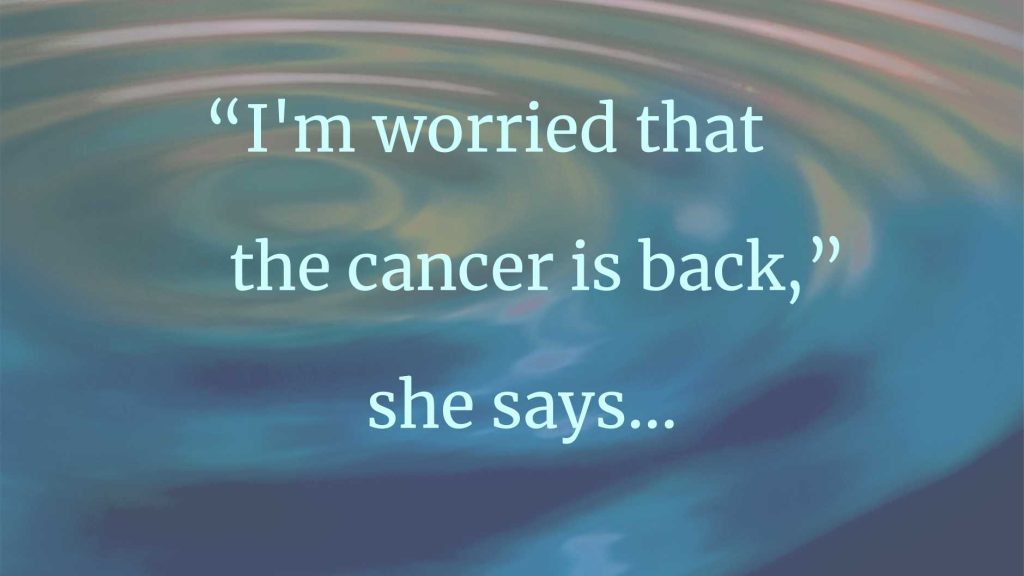
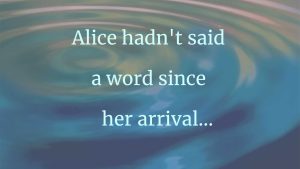
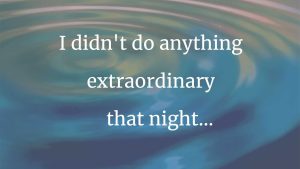
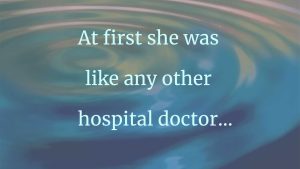
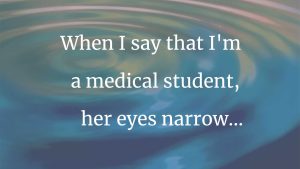
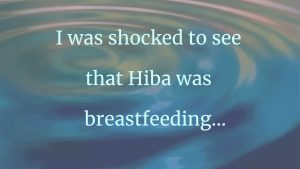
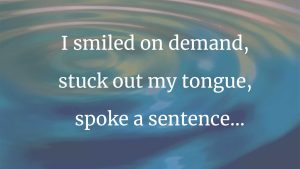
9 thoughts on “Thank You, Betty”
Beautiful! The time you took to just “be” with Betty was more important than any other treatment.
Thank you for writing so beautifully about one of the most profound tools in the doctor’s bag. It can’t be quantified, monitored, or written in to the curriculum. And we all know the dangers of systems that don’t acknowledge it. Please protect this precious gift inside you. Abundant blessings on you.
Wow! Beautiful! May you continue your path in medicine and never forget and always treasure the human connections we make. We need more people like you in medicine. Wishing you all the best in your future career. And never, please never, forget Betty. Thank you for sharing this wonderful story.
Well written! Make sure you keep this experience in the forefront of your memory throughout your professional life, and may you have many more such moments to treasure–they will counterbalance the inevitable dramas.
Wonderful insight for someone so busy with learning and practicing the complex intricacies of the professional practice. Often, just “being” with our caring presence, brings peace and comfort at such challenging times. You showed great courage in being vulnerable
and open in showing your humanity and in not dismissing or disregarding what this person, this patient, needed exactly at this time, which was no less important than the scans, labs, exams, etc. Thanks for sharing your encounter and in reminding us of our humanity.
I had days like this too. Sometimes the tears quietly came. Thank you for reminding us of the world before epic. She was lucky to have you that evening.
This is a beautiful and touching story about what makes the practice of medicine such a privilege. When our patients trust us with their feelings, it enables us to be fully human and in touch, which benefits us all. Thanks so much for sharing this story.
Beautiful. Thanks
Well done. Thank you for seeing beyond the history and exam. And for allowing your spiritual side to show.